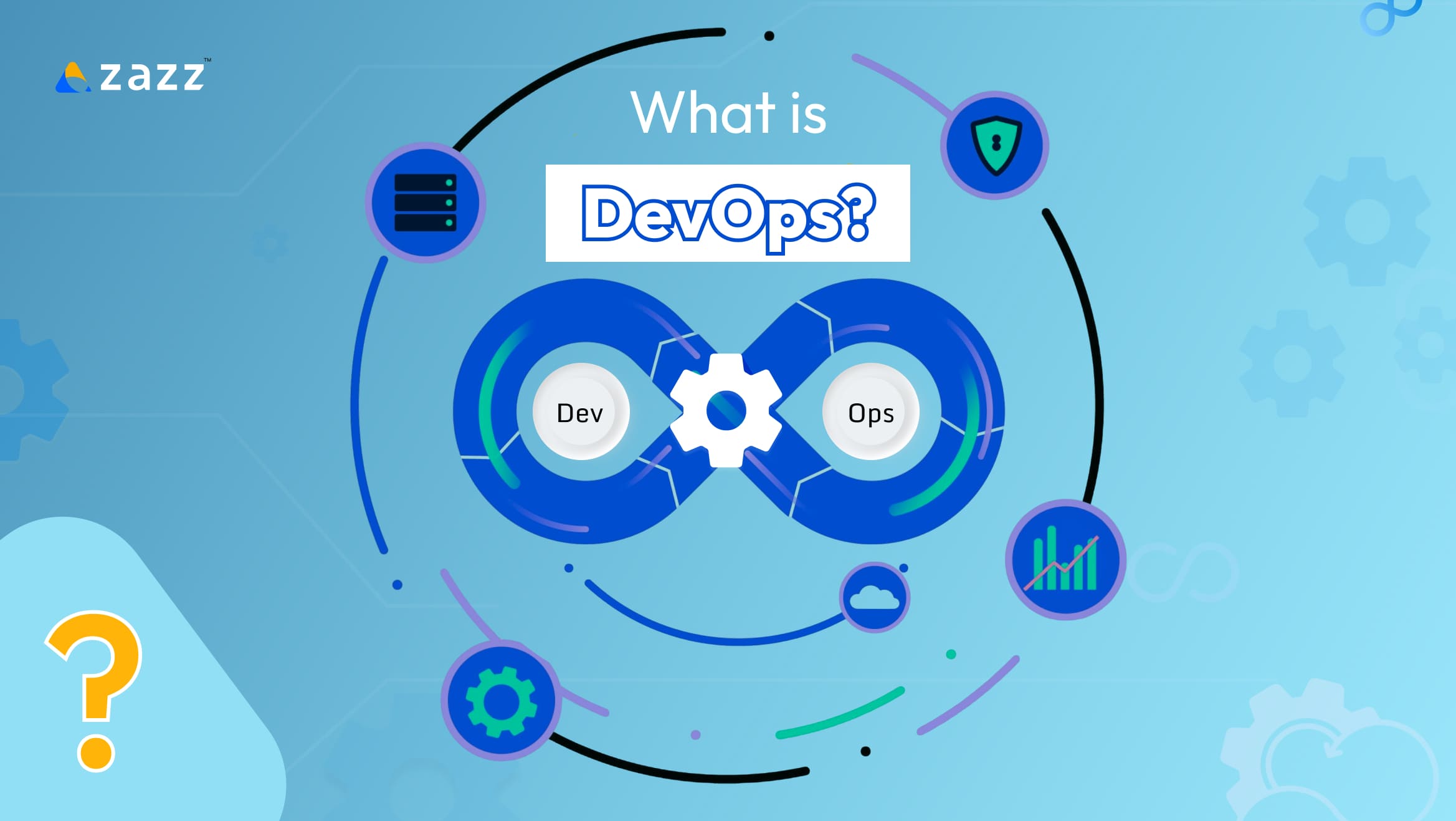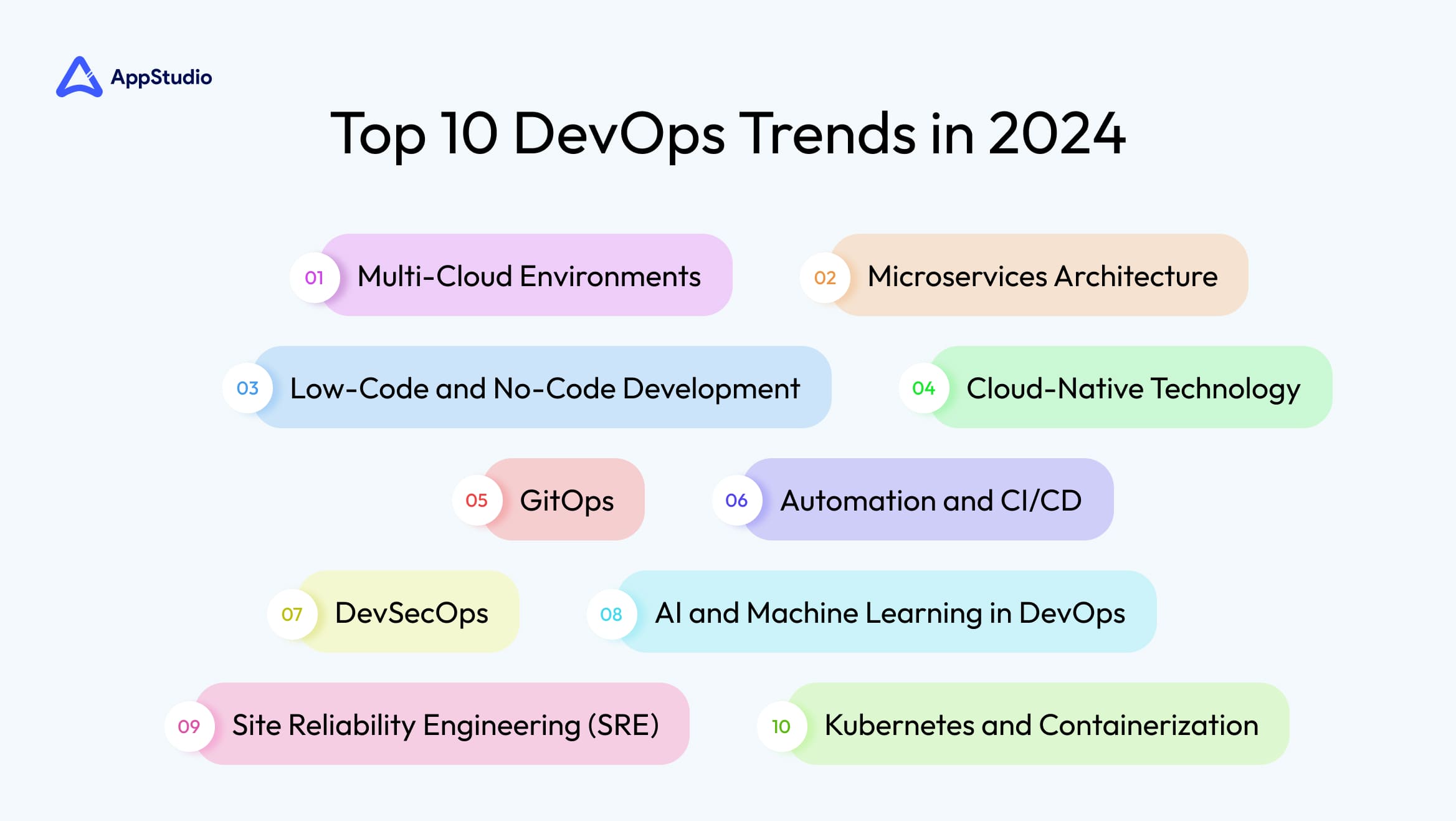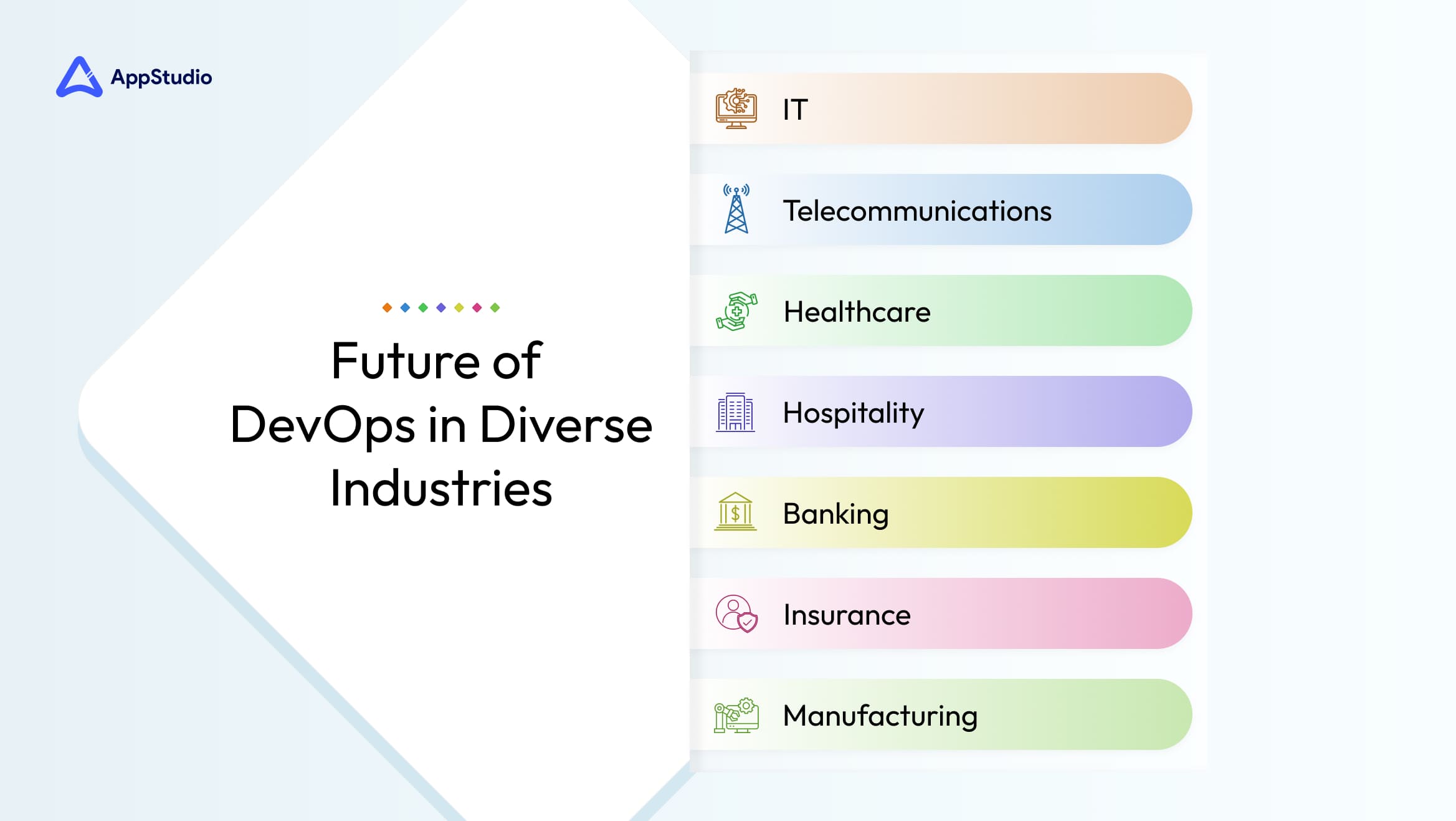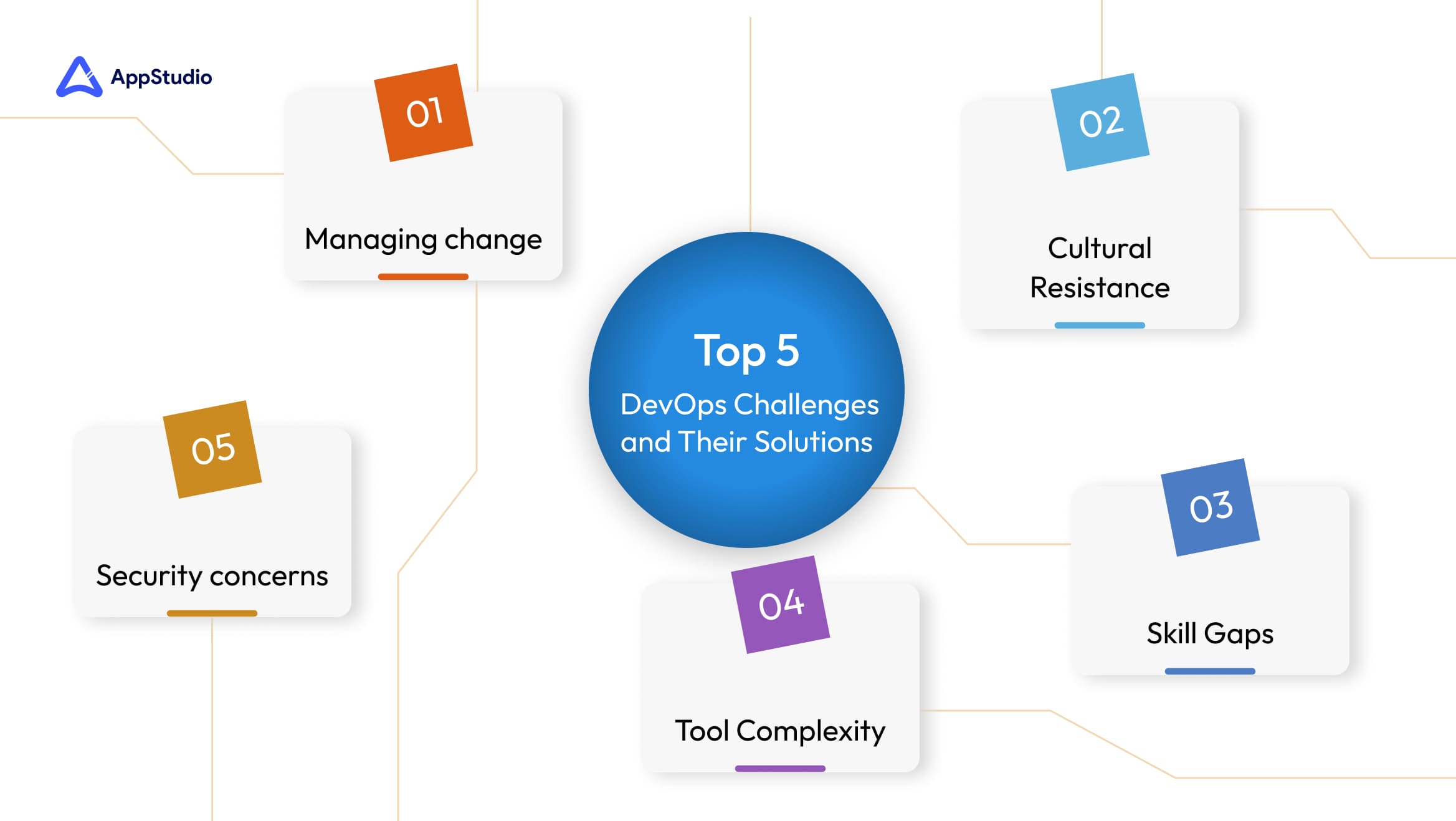
Have you ever experienced the calm of early morning, knowing the day ahead is full of possibilities? In the same way, DevOps and Cloud computing are opening doors to endless opportunities for modern businesses.
But are you truly ready to harness this power, or will you be stuck in outdated practices? Let’s explore the future of DevOps and Cloud Computing, where automation, AI, and best practices converge to shape the next generation of IT.
What is DevOps?

DevOps is a collaborative methodology that integrates software development with IT operations for streamlined efficiency; it’s the engine that powers the journey from concept to completion. Like a well-oiled machine, it combines best practices—continuous integration, continuous delivery (CI/CD), and infrastructure as code—to drive efficiency and accelerate software development, ensuring smoother, faster releases.
Wondering what the market demand for DevOps looks like? Let’s get straight to the point.
DevOps Demand In Tech Trends
DevOps is an essential process that helps companies develop and deliver software more efficiently, reducing the time it takes to release new updates. Looking into the future, DevOps is expected to create numerous job opportunities across various industries because more businesses are adopting its practices to improve their operations.
According to a study by Grand View Research, Inc., the global development to operations market is expected to reach USD 37.25 billion by 2030 and expand at a 16.8% CAGR from 2023 to 2030.
The demand for DevOps professionals will continue to rise, with companies seeking experts in areas like automation, CI/CD, cloud computing, and Agile methodologies.
With that in mind, let’s see what the DevOps trends shout for 2024 and the next five years!
Related reading: Keen on having a robust DevOps culture? Here’s your guide
Top 10 DevOps Trends in 2024

DevOps continues to be the driving force behind agility, efficiency, and innovation in the fast-evolving world of software development. As we look toward the future, several key trends promise to redefine how businesses develop, deploy, and manage their software.
Let’s explore the latest DevOps trends shaping this landscape.
1. Microservices Architecture: Embracing Flexibility and Agility
Microservices architecture is revolutionizing software development and scaling. Organizations can develop, deploy, and scale each service individually by breaking applications into smaller, independent units (microservices). This architecture enhances agility and allows companies to respond swiftly to changing market demands. Microservices make adding features or increasing capacity easier without affecting the entire system, ensuring flexibility and scalability for modern businesses.
2. Cloud-Native Technology: Powering Next-Generation DevOps
Cloud-native technology has become the backbone of modern DevOps practices, built on microservices, containers, and immutable infrastructure. This approach enables teams to iterate rapidly, reducing dependencies and allowing seamless deployment of changes. Cloud-native solutions allow developers to update applications without disrupting live services, making it easier for businesses to stay competitive. The ability to design, build, and deploy in cloud environments offers speed and flexibility that traditional systems can’t match.
3. Automation and CI/CD: The Heart of Efficiency
Automation remains at the core of DevOps driving CI/CD pipeline. Automated testing, deployment, and infrastructure management reduce manual effort and minimize human error. As organizations continue to embrace automation, they can quickly adopt new technologies and processes without being bogged down by repetitive tasks, ensuring faster time-to-market and reduced operational costs.
4. AI and Machine Learning in DevOps: The Future of Smart Automation
AI and machine learning are transforming DevOps by providing insights through auto-suggestions and reports, helping teams solve problems and make informed decisions. In a DevOps environment overwhelmed with vast amounts of data, AI development and ML help manage and analyze it efficiently. These technologies are integral to improving workflows, from automating builds and testing to resource allocation and predictive maintenance. The rise of AIOps (Artificial Intelligence for IT Operations) and DataOps highlights the growing trend of integrating AI to handle the complexities of modern IT ecosystems.
5. Kubernetes and Containerization: The Gold Standard of Deployment
Containerization has rapidly become the foundation of DevOps, and Kubernetes is its leading orchestration tool. By simplifying container management, Kubernetes allows companies to deploy applications across diverse environments easily. It has evolved from a niche tool to an industry standard, providing flexibility and scalability. With more companies moving toward containerized architectures, Kubernetes is expected to dominate future DevOps workflows, enabling seamless application delivery and scaling.
Related reading: DevOps Toolchain: Important Tools, Benefits, Creation of the Toolchain
6. Multi-Cloud Environments: The New Normal
With cloud computing services becoming a cornerstone of digital transformation, businesses are no longer tied to a single cloud provider. Multi-cloud environments have emerged as a powerful solution, allowing companies to leverage the strengths of various cloud platforms. This approach offers greater flexibility, mitigates vendor lock-in, and improves disaster recovery. Managing multiple clouds may seem challenging, but the benefits of resilience and scalability are undeniable.
7. Low-Code and No-Code Development: Speeding Up Innovation
The rise of low-code and no-code platforms is set to significantly impact DevOps. These tools allow users to create applications without writing complex code, using drag-and-drop interfaces instead. Low-code platforms enable faster development cycles, allowing businesses to automate processes and quickly respond to changes. They also reduce the need for specialized development resources, lowering IT costs and accelerating Enterprise digital transformation.
8. GitOps: Streamlining Infrastructure Management
GitOps is gaining traction as a way to manage infrastructure and application workloads using Git as the single source of truth. This trend enables teams to define, test, and deploy applications in a single, streamlined flow. GitOps brings enhanced security, stability, and simplicity to deployment processes, making it an appealing choice for modern DevOps teams seeking to optimize their operations.
9. DevSecOps: Security from the Start
DevSecOps integrates security into every development lifecycle stage rather than treating it as an afterthought. As cyber threats become more sophisticated, embedding security into DevOps pipelines is crucial. DevSecOps ensures that security is continuously monitored and addressed throughout development, reducing vulnerabilities and enhancing overall system resilience.
10. Site Reliability Engineering (SRE): Ensuring Reliability and Scale
SRE is one of the hottest trends in DevOps, emphasizing reliability, scalability, and automation. It helps organizations create robust software that can handle failures and disruptions with minimal impact. By automating performance monitoring and self-diagnosing system issues, SRE ensures high availability and reliability, making it a valuable practice for businesses focused on delivering seamless user experience.
Related reading: What is the time required for launching a mobile app?
The Future of DevOps in Diverse Industries

Organizations embrace DevOps practices for many reasons, such as enhancing efficiency, fostering collaboration, improving security, and accelerating bug resolution. Regardless of their motivations, the overall experience with DevOps tends to be positive, and its adoption continues to gain momentum.
DevOps is evolving in step with industry changes. While automation used to be the main focus, AI is now taking the spotlight. Let’s explore how the future of DevOps is shaping up across different industries.
IT
DevOps helps streamline operations, making it easier for developers to release new features. The demand for DevOps professionals is rising as they automate tasks and oversee the entire development-to-deployment process. They need a solid understanding of both the technical and non-technical aspects of software development.
Telecommunications
In this field, DevOps combines software engineering and operations practices. It focuses on teamwork among different disciplines to create high-quality, stable, and secure products.
Healthcare
DevOps helps close the gap between development and operations. While it’s commonly used in software industries, it’s also valuable for managing software products in healthcare services.
Hospitality
The hospitality industry is rapidly changing, with technology enhancing guest services. Some hotels use AI for tasks like room service, which saves time and improves efficiency.
Banking
DevOps enables faster feedback and more frequent software releases. In banking, where strict regulations like PCI DSS must be followed, DevOps is increasingly important for managing IT infrastructure.
Insurance
DevOps has long been used in the insurance sector to automate time-consuming processes like claims processing and underwriting.
Manufacturing
DevOps practices are becoming essential in manufacturing. The industry has successfully implemented these practices to improve operations.
Related reading: Why Scalability Matters in Mobile App Development?
Top 5 DevOps Challenges and Their Solutions

As businesses embrace the future of DevOps and cloud computing, they will encounter several challenges that require proactive solutions. Here are the top challenges organizations may face and strategies to overcome them.
1. Cultural Resistance
Challenge: Transitioning to a DevOps culture may face resistance from employees accustomed to traditional practices.
Solution: Foster a culture of collaboration, open communication, and continuous improvement. Encourage team members to embrace change through training and support.
2. Skill Gaps
Challenge: As DevOps evolves, organizations may struggle to find skilled professionals.
Solution: Invest in training and upskilling existing employees to bridge the skill gap. Organizations turn to it staff augmentation to quickly access specialized DevOps talent while developing internal capabilities. Collaborate with educational institutions to create tailored training programs.
3. Tool Complexity
Challenge: The proliferation of tools can lead to confusion and inefficiencies.
Solution: Establish a standardized toolset that aligns with business goals and provides clarity. Regularly review and optimize the toolchain to eliminate redundancies.
4. Security Concerns
Challenge: As organizations adopt new technologies, security becomes increasingly critical.
Solution: Implement DevSecOps principles to integrate security into every stage of the development process. Conduct regular security assessments and training to mitigate risks.
5. Managing Change
Challenge: Rapid changes in technology and processes can overwhelm teams.
Solution: Adopt an agile approach to change management. Break down changes into manageable increments and communicate effectively with all stakeholders.
By addressing these challenges head-on, organizations can successfully navigate the future of DevOps and cloud computing, reaping the rewards of innovation and agility.
Related reading: 5G Revolution: Impact and Evolution in Mobile App Development
Conclusion
We hope the DevOps statistics discussed above provide valuable insights into the growing popularity of this approach in today’s digital landscape. DevOps empowers businesses to achieve their goals by enhancing efficiency and automating processes. Leveraging modern tools and technologies—like cloud computing, automation, and CI/CD—DevOps facilitates secure software development and application management.
As the industry evolves, so too does the future of DevOps. While automation was once the focal point, artificial intelligence is now taking the lead. Much like a sunrise heralds a new day, the future of DevOps and cloud computing represents a bright opportunity for businesses willing to embrace change. With AI-driven automation and hybrid cloud strategies, the resources are already available for organizations to thrive in this new era.
However, just as dawn is unstoppable, the shift towards a more advanced DevOps and cloud landscape is inevitable. The real question is: Are you ready to step into the light, or will you linger in the shadows of outdated practices? Contact Zazz, and let us guide you on your way forward!
Frequently Asked Questions
DevOps is a set of practices that combines software development (Dev) and IT operations (Ops) to enhance collaboration and productivity. It aims to shorten development cycles, increase deployment frequency, and improve software quality, making it essential for businesses striving for agility and innovation.
The demand for DevOps professionals will continue rising as more organizations adopt DevOps practices. With increasing automation and the need for efficient software delivery, companies are seeking experts skilled in CI/CD, cloud computing, and Agile methodologies.
Key trends include adopting microservices architecture, cloud-native technologies, automation through CI/CD, AI, and machine learning integration, containerization with Kubernetes, and the rise of DevSecOps to ensure security throughout the development lifecycle.
DevOps is transforming multiple sectors, including IT, healthcare, telecommunications, banking, and manufacturing. By fostering collaboration and improving efficiency, it helps organizations release software faster, respond to market changes, and enhance overall product quality.
Challenges include:
- Cultural resistance to change.
- The need for skill development among existing teams.
- Integration of new tools and processes.
- Ensuring collaboration across departments.
Addressing these challenges is crucial for a successful DevOps implementation.
Organizations can prepare by investing in team training, adopting automation tools, fostering a culture of collaboration, and staying updated on emerging technologies. Embracing flexibility and a continuous improvement mindset will also help them thrive in the evolving landscape.
Recent Articles
Table of Content 1. Skills and Workforce Evolution 2. Top...
Table of Content 1. Data Engineer vs. Data Scientist: Understanding...
Table of Content 1. What is the Carnival in Brazil?...












